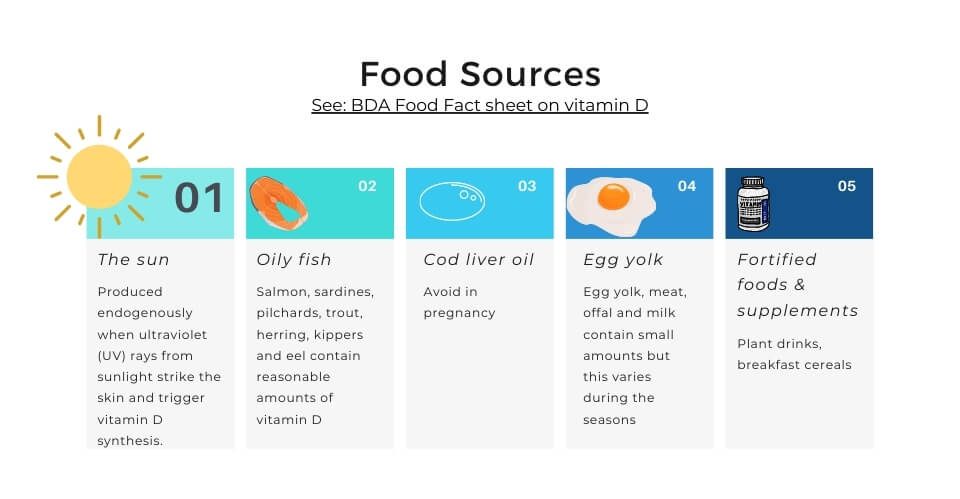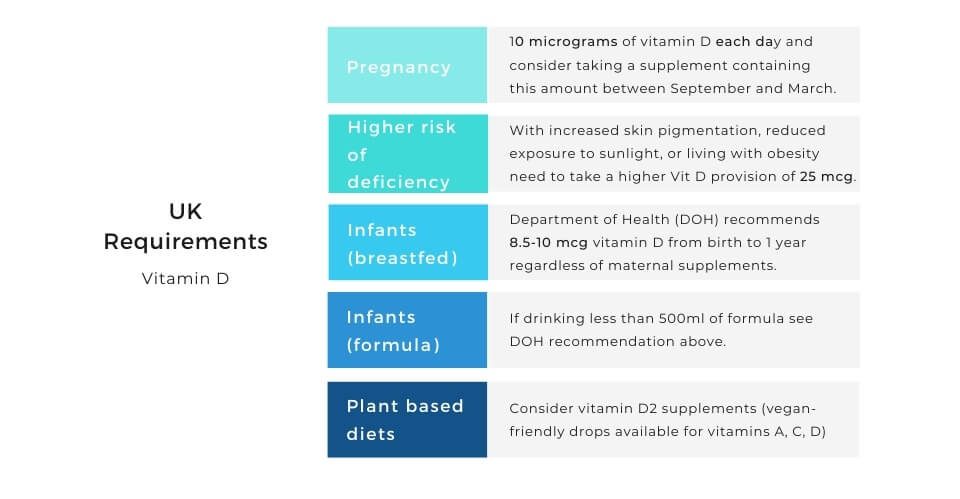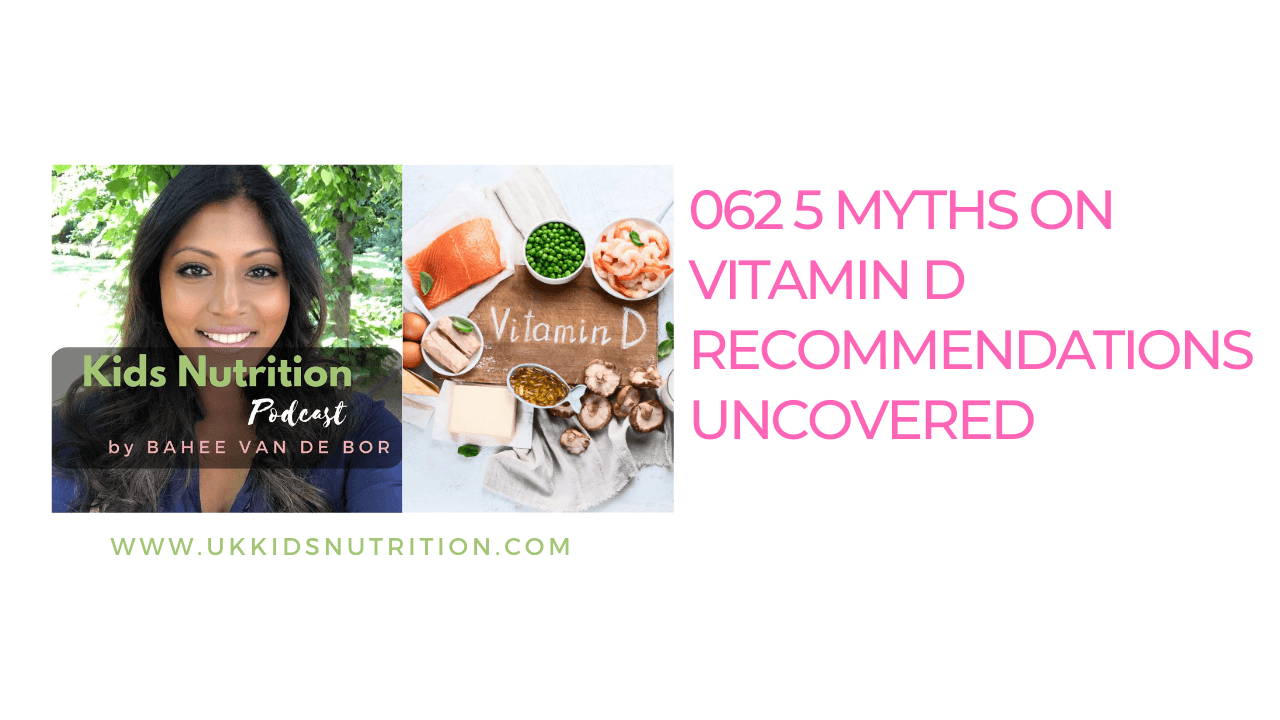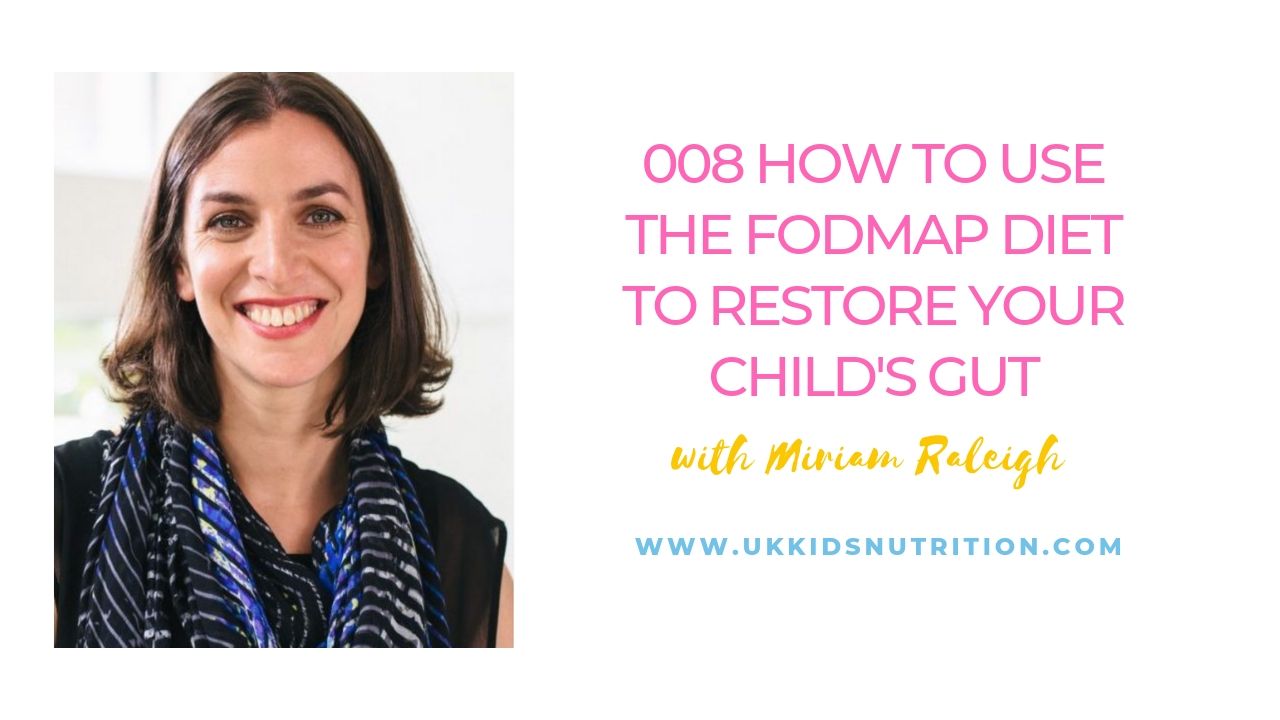APPLE PODCAST
LISTEN ON SPOTIFY
Vitamin D is the new trendy vitamin on the block! Due to its link with immunity and fighting infection in the body, a whole bunch of myths about vitamin D recommendations have surfaced.
In this episode, we’ll uncover how much vitamin D you and the children really need.
Here’s a glance at the episode:
Myth 1: You can get all the vitamin D you need from your diet
False! Vitamin D is made in the skin when exposed to UVB light from the sun. It gets absorbed through the gut, metabolised in the liver and then gets activated in the kidneys to do its important job of helping our bones and teeth absorb enough calcium and phosphorus.
In terms of diet, some types of oily fish like salmon, sardines and trout do contain vitamin D but the amounts of vitamin D will vary depending on their own exposure to sunlight. Remember that we don’t eat oily fish every day so you would still need to think about your daily vitamin D supplement, especially over winter here in the UK.
Other sources include fortified foods such as breakfast cereals and plant drinks but both adults and older children will need to take a daily 10 ug vitamin D supplement over the winter.
Table 1: Food Sources of Vitamin D

Myth 2: I went on holiday for a week in a sunny hot spot. So I’m okay.
This really depends on the amount of sunshine you had and the colour of your skin! If you are fair-skinned and had at least 20 minutes of sunlight all throughout summer (assuming it was at the hottest time of the day and you didn’t wear any sunblock) then you might have adequate levels of vitamin D.
If you are darker-skinned and had at least 30-40 minutes of sun exposure over the summer, then you are covered for the summer period only. For the rest of the year, you need additional vitamin D supplements of 25 ug per day.
Myth 3: we all need the same amount of vitamin D supplements
Babies need 8.5 – 10 mcg of vitamin D per day
Once infants are over the age of 1 they need 10 mcg of vitamin D daily until age 5.
They may need a supplement over winter depending on how much exposure to the sun they get over winter and the colour of their skin.
As mentioned above, if you are always covered when outside or tend to work indoors and miss the sun altogether or are also living with obesity plus are darker-skinned then you need 25 micrograms of vitamin D per day. This also includes pregnant women.
It is important to point out that persons living with obesity can be at risk of low vitamin D status. Although vitamin D is fat-soluble, there’s some thought that there is a reduction in the activity of the vitamin D receptor on fat cells.
Table 2: How Much Vitamin D Do I Need?

Myth 4: we should take high-dose vitamin D supplements for increased immunity
Wrong! Children should only take 10 mcg of vitamin D per day (unless advised otherwise by their doctor).
Adults can take up to 100 mcg per day, but unless you have low vitamin D levels (measured to be under 50 nmol/l), you probably won’t need more than 25 mcg per day.
Myth 5: I’m breastfeeding and taking vitamin D supplements so my baby doesn’t need any
This can be confusing. If you are breastfeeding both baby and mum should be taking vitamin D supplements.
Breastfed babies should take a vitamin D supplement from birth but won’t need any supplements if they drink 500ml or more of infant formula.
All infants need between 8.5 – 10 mcg of vitamin D per day (regardless of how much vitamin D supplements the mother takes).
LISTEN ON APPLE PODCAST
LISTEN ON SPOTIFY
Enjoy the show?
Don’t miss an episode and subscribe on iTunes, Spotify, Stitcher!
Leave me a review on iTunes, it would be so much appreciated.
Let Me Help
Would you like to meet a children’s dietitian who has successfully helped families solve their nutrition problems from around the world?
No matter what you are worried about, I’ll help you manage these with confidence.




